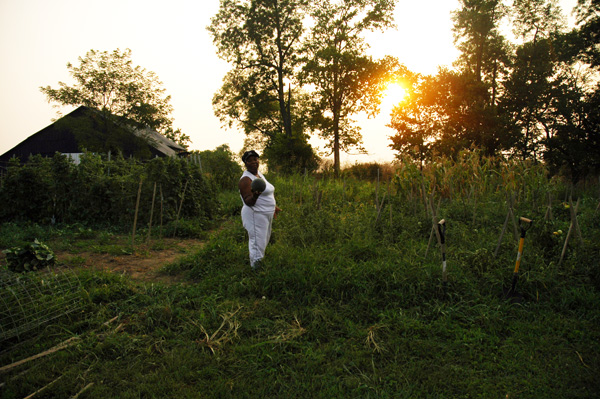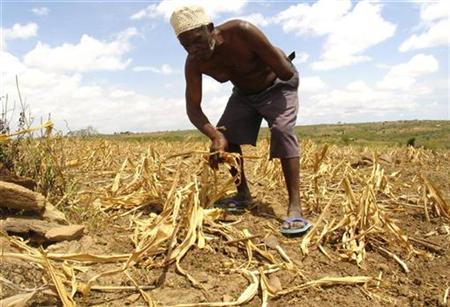
Who could have seen THIS coming?
A recent New York Times article on the rapid growth of “superweeds” notices that some species have done exactly what Darwin noticed living things do: under herbicidal assault, they adapted.
Now Roundup, Monsanto’s crack for farmers, is having trouble killing pigweed, and the expensive herbicide/seed program isn’t looking like such a good deal anymore. But the large-scale farmers have a lot invested in industrial farming, so many are just layering new poisons onto the Roundup, and are even encouraged to do so by Monsanto, which, the Times reports, “is it is taking the extraordinary step of subsidizing cotton farmers’ purchases of competing herbicides to supplement Roundup.”
Michael Pollan, one of the Room for Debate voices in a Times discussion on the subject, points out that this should come as a surprise to exactly no one. “A product like Roundup Ready soy is not, as Monsanto likes to claim, ‘sustainable.’ Like any such industrial approach to an agronomic problem — like any pesticide or herbicide — this one is only temporary, and destroys the conditions on which it depends. Lucky for Monsanto, the effectiveness of Roundup lasted almost exactly as long as its patent protection.”
The Times parrots without comment the claim that no-till agriculture with “Roundup Ready” seeds is “environmentally friendly.” True, it reduces erosion and lessens runoff, but I don’t think everyone really understands what really goes on in this kind of agriculture. (Interested in the details of how glyphosate works? Check out this fact sheet from beyondpesticides.org (pdf). “Environmentally friendly”? I’m not so sure.)
And here is where I would like to make a rather bold suggestion: Why not just call the superweed callaloo and eat it?
Pigweed is amaranth, after all, and amaranth is edible and nutritious, both as leaves and seeds. When we first moved to Kentucky, Florence, our friend and one-time babysitter (from a past life when we were both had jobs and 401ks and benefits in New York), came to visit us. She looked into a field of what we called pigweed, and saw callaloo, a delicious green from her youth near Ocho Rios, Jamaica. She waded in, harvested a few large bags, trimmed it and cooked it up with lots of garlic and hot peppers and it was delicious.
I wouldn’t encourage anyone to eat the pigweed laced through with Roundup of course. And I’m not sure the resistant palmer amaranth is the same variety of amaranth that we enjoyed. But if there are varieties of a “superweed” that are edible and nutritious, a smart farmer might take the hint from mother nature and grow the native plant that doesn’t need massive doses of chemicals to thrive.
Or not. Even if that farmer is dead-set on continuing with the commodity crop (and of course that’s where the (subsidy) money is), The redoubtable Rodale Institute has been doing some great work with organic no-till methods.
